
Culture
14:01, 23-Dec-2017
Winter fishing at Chagan Lake: A tradition of 1,000 years
By Ai Yan

Hundreds of thousands of tourists are expected to descend on Chagan Lake in northeast China's Jilin Province on Thursday to witness the annual winter fishing ceremony.
Winter fishing at Chagan Lake, the province's largest freshwater lake and one of the ten largest freshwater lakes in all of China, dates back more than 1,000 years.
The lake, which covers an area of nearly 500 square kilometers, annually produces up to 6,000 tons of fish from its 68 different species. The lake has not only provided locals with an abundant food source since the ancient Liao and Jin dynasties, which spanned from the 10th to the 13th centuries, but also cultivated the unique culture of winter fishing and hunting.
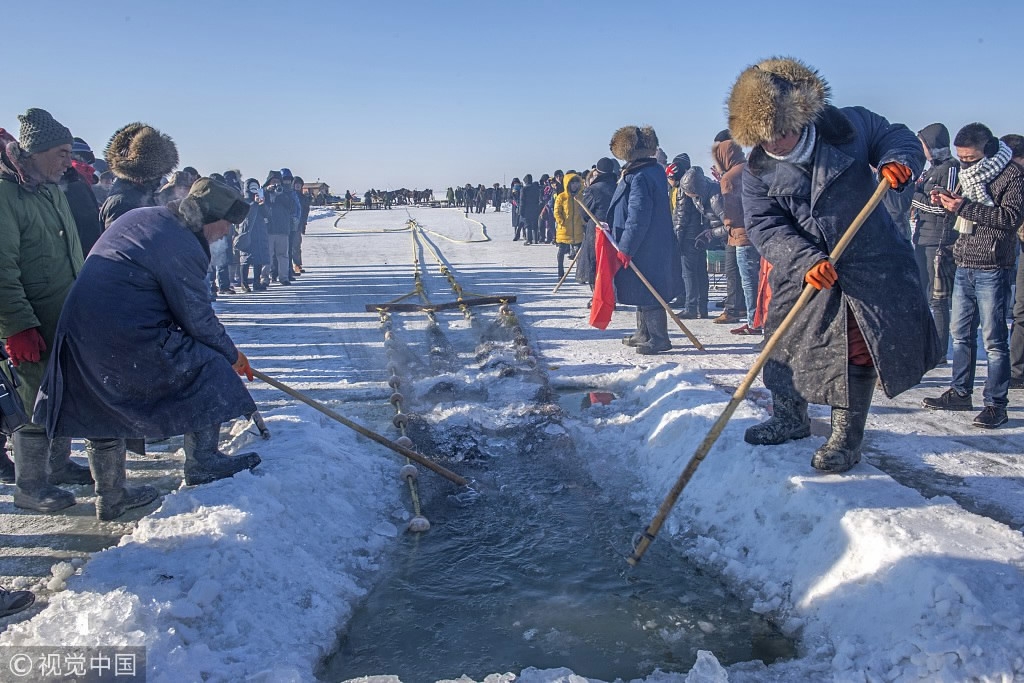
Fishermen casting nets into Chagan Lake /VCG Photo
Fishermen casting nets into Chagan Lake /VCG Photo
Every year, winter fishing begins around December 26-28, and usually lasts for around a month. The total catch could be millions of kilograms of fish. In 2016, the fishermen even reset a Guinness World Record with a haul of 260 tons of fish in one shot – more or less the weight of one Boeing 737 aircraft.
A fishing festival steeped in tradition
Following ancient traditions, before the winter fishing begins, locals hold grand ceremonies honoring the gods of the lake and heaven for bestowing the food, as well as blessing the huge nets they will use during the fishing process.
The leader of the fishermen presides over the ceremony by putting offerings on the table, igniting incense and announcing the beginning of the fishing.
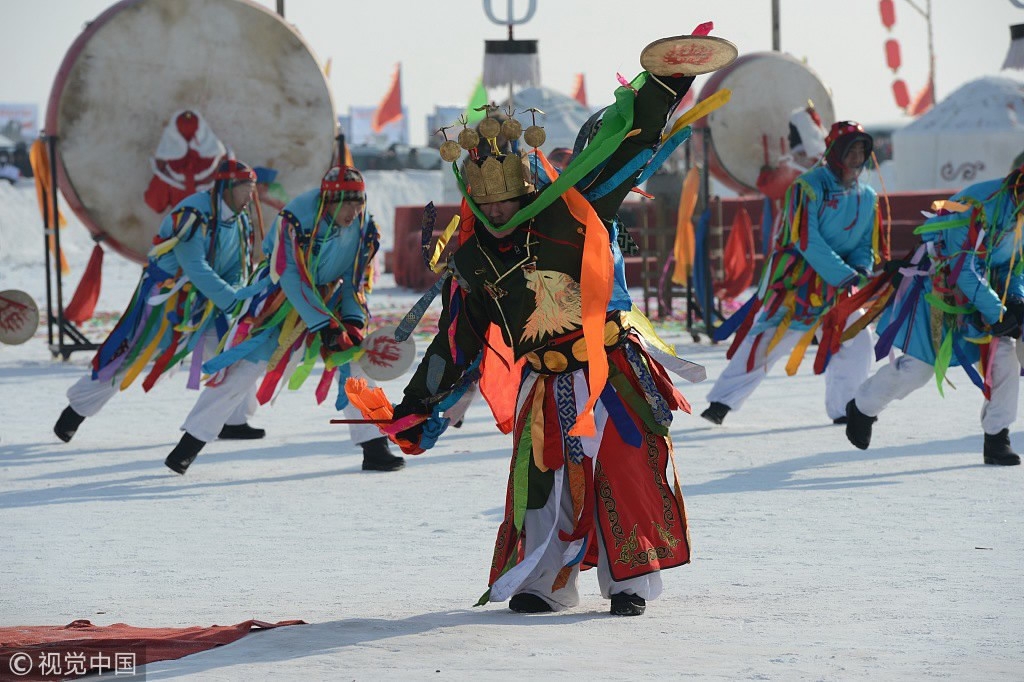
Ceremony held ahead of winter fishing /VCG Photo
Ceremony held ahead of winter fishing /VCG Photo
The fishing group has at least 50 to 60 members and each one has a specific job. Even with access to modern technology, fishermen simply rely on horses and their own two hands when casting their nets every winter at Chagan Lake.
The leader, known as "Yubatou," is the most experienced in the group and determines the hunting site. By observing the depth of the lake and the features of the bottom, the leader locates the site. The fishermen then drill hundreds of holes in the 50-centimeter layer of ice.
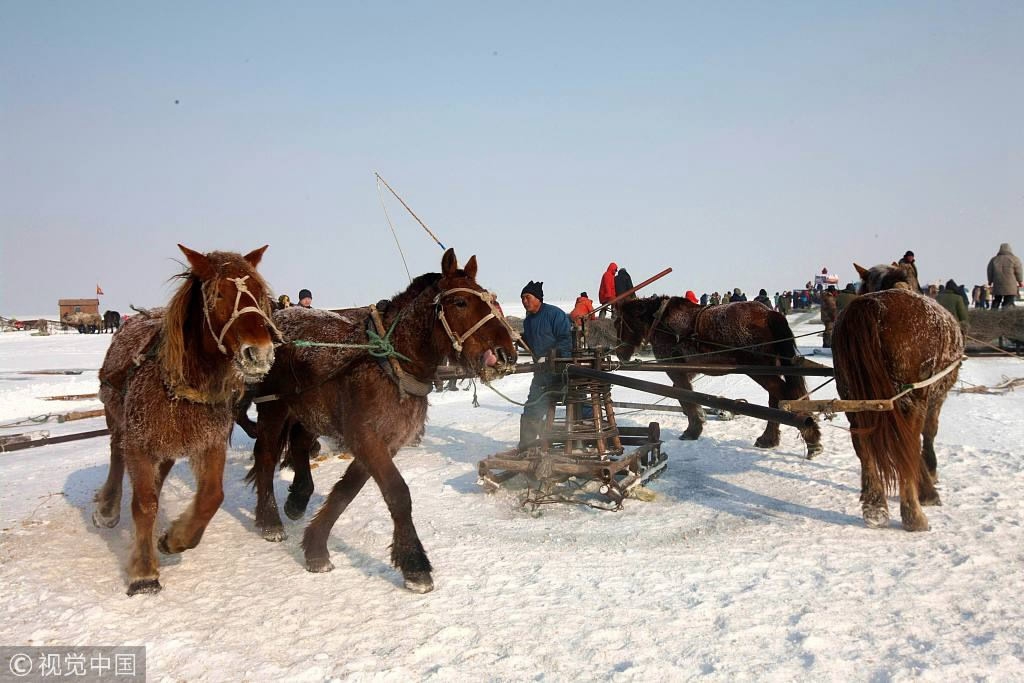
Horses turn the wheel to pull the nets. /VCG Photo
Horses turn the wheel to pull the nets. /VCG Photo
Huge fishing nets, usually 2,000 meters long, are then weaved through the holes to form a kind of enclosure beneath the ice. The fishermen then drive the horses to turn a giant wheel attached to the nets, which pulls the massive nets ashore.
The largest fish in the first catch is believed to be auspicious and lucky, and will go under the hammer to the highest bidder. Last year, the "star" fish, weighing 25 kilograms, was sold for 850,000 yuan (129,000 US dollars) at auction.
This year's prices are only going to get higher. It shows the kind of belief the Chinese people have in chasing good luck. Because in the ancient fishing culture, the biggest fish was a symbol of harvest, and people believed the fisherman who caught it would have a prosperous year ahead.
Preserving nature for the next generation
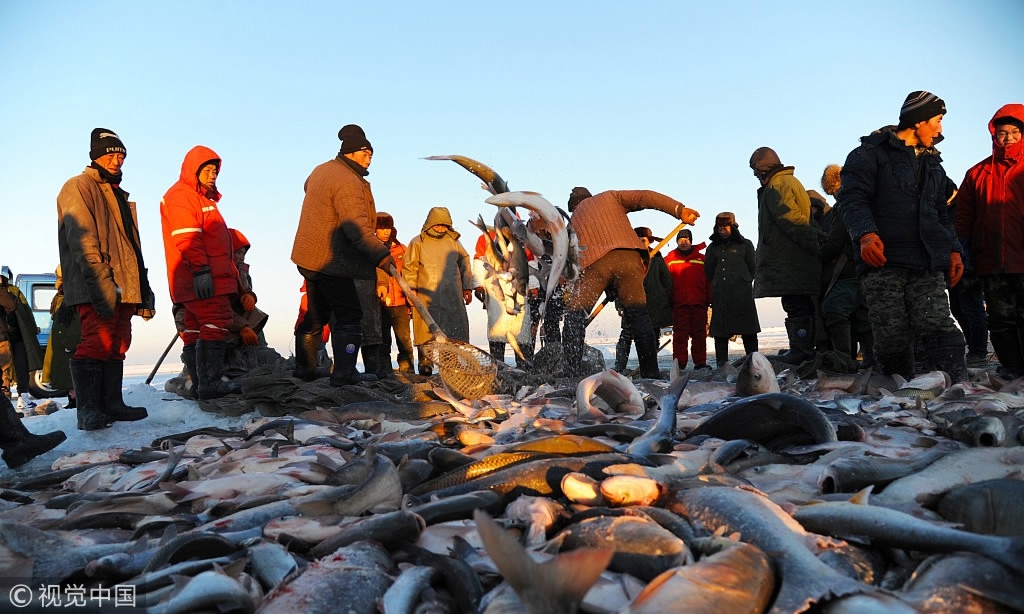
Fishermen show their latest catch. /VCG Photo
Fishermen show their latest catch. /VCG Photo
Fishermen keep nature in mind throughout the process in order to preserve the tradition for the next generation. Avoiding the use of modern vehicles helps reduce the chance of contaminating the lake water, and the number of fish that can be caught is capped to avoid draining the lake, ensuring that there will be fish for years to come.
Also, over the past few years, the money from the auction has been invested into protecting the lake and surrounding environment. And during the summer, local authorities are monitoring the water quality of the lake very closely, and private fishing without permission is strictly prohibited. These preservative measures have kept the tradition alive for thousands of years and certainly will be pass on to future generations.
In 2008, winter fishing at Chagan Lake was listed as a national intangible cultural heritage. It is also a popular attraction among winter tourists.
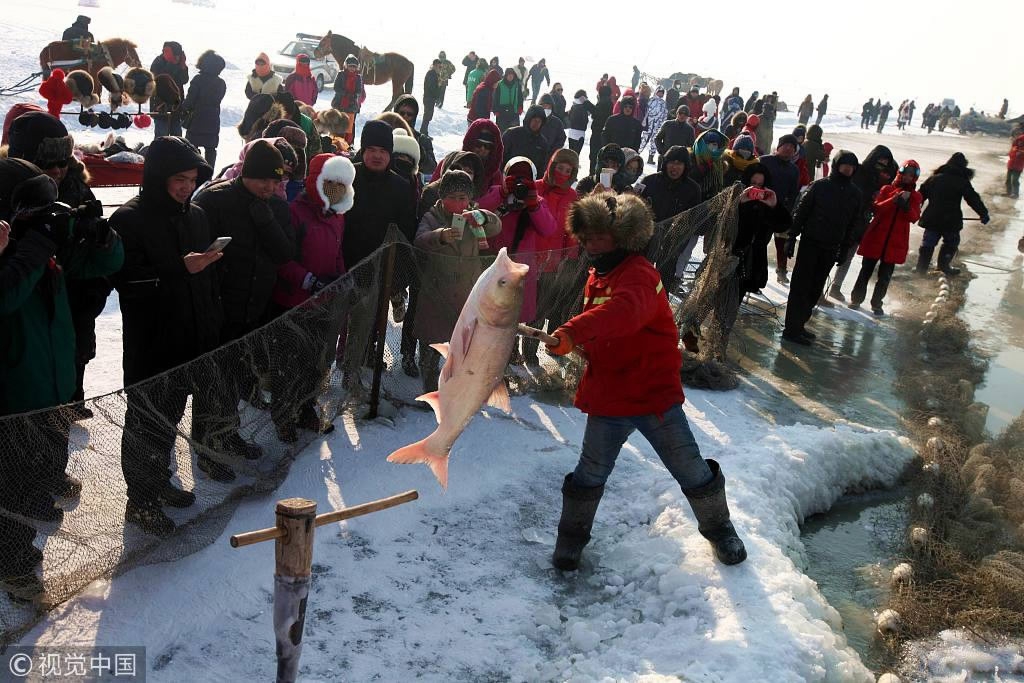
Fisherman shows the first fish from the net to visitors. /VCG Photo
Fisherman shows the first fish from the net to visitors. /VCG Photo
The annual winter fishing festival allows tourists to not only witness the tradition of ice fishing, but also visit ice and snow sculptures, go skiing and enjoy the local natural scenery and food.
Despite average temperatures that dip as low as -10 to -40 degrees Celsius, tourists have embraced the piercing cold in order to explore the excitement and enthusiasm of the ancient tradition.
Watch CGTN's live broadcast of the winter fishing at Chagan Lake:
(CGTN's Guan Yang also contributed to the story.)
880km

SITEMAP
Copyright © 2018 CGTN. Beijing ICP prepared NO.16065310-3
Copyright © 2018 CGTN. Beijing ICP prepared NO.16065310-3